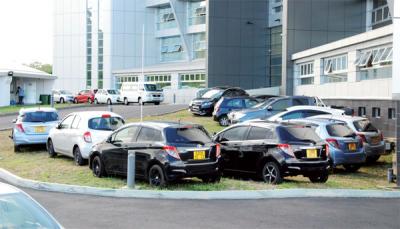La dernière édition de la Newsletter de l’Independent Commission Against Corruption (ICAC), publiée hier, revient sur l’intention de cette institution d’accentuer la pression sur la poche des trafiquants de drogue ou autres suspects engagés dans des activités criminelles. Dressant un premier bilan de la stratégie revue et corrigée avec la lutte contre le Money Laundering en tant que priorité, l’ICAC révèle que d’octobre de l’année dernière à mai de cette année, elle a obtenu des Juge’s Orders pour des Attachment Orders sur des avoirs évalués à quelque Rs 80 millions. La prochaine étape de cette stratégie se fera sous la forme d’une coordination structurée à l’initiative de l’ICAC et comprenant la police, la Mauritius Revenue Authority, la Financial Intelligence Unit, la Financial Services Commission et le Mauritius Prisons Service. Dans cette perspective, l’élaboration d’un Memorandum of Understanding s’avère une étape cruciale, d’autant plus qu’avec les détails révélés devant la Commission d’enquête sur la drogue, présidée par l’ancien juge Paul Lam Shang Leen, la lutte contre le blanchiment de fonds devra franchir un nouveau palier.
À ce stade, l’ICAC a obtenu de la Cour suprême des Attachment Orders contre 80 suspects pour des avoirs évalués à quelque Rs 80 millions. Dans les mois à venir, avec les cas évoqués devant la Commission d’enquête sur la drogue et les allégations de Money Laundering contre des officiers de la prison ou encore des Members at the Bar, le tableau devra connaître une nette évolution. « The Commission has decided to take the bull by its horns and to wage a relentless war against money launderers », note la Newsletter à ce chapitre. « In a bid to innovate its strategy, the Commission has moved to a more proactive strategy of gathering intelligence in order to track down drug traffickers. Since the adoption of this new strategy, there has been a significant increase in the number of money laundering investigations at the ICAC ».
De son côté, le directeur général de l’ICAC, Navin Beekarry, est catégorique par rapport à cette stratégie. « If we turn the tap of illicit gains off, the criminals will be deprived of the very foundation of their illicit activities », estime-t-il dans son message. Navin Beekarry lance un appel à la coopération de tout un chacun pour éliminer ce fléau. « The immediate result of this new strategy at ICAC has seen a significant increase in tracking money laundering practices in drug-related offences and has lifted the lid, allowing the country to realise how serious the problem really is. However, it is important that we realize that it is everyone’s responsibility to engage if the problem has to be addressed frontally », ajoute-t-il.
Toutefois, l’ICAC ne compte pas se reposer sur ses lauriers et envisage une nouvelle étape dans cette lutte contre l’argent sale généré par le trafic de drogue, soit la coordination entre les différentes institutions engagées dans ce combat. Après une étape initiale de concertation, un Memorandum of Understanding est évoqué. « The agencies agreed to develop an inter-agency Memorandum of Understanding with broad objectives of better and more effective collaboration and coordination. The MoU will define specific areas of collaboration and coordination. True it is that there has been collaboration between the ICAC and the police and other agencies on an ad hoc basis. However, the regent need for closer and a more structured approach to coordination and collaboration was felt greater than ever. The agencies also agreed for the coordinating group to be a permanent platform, for closer and more effective inter-agency collaboration », soutient l’auteur de l’article intitulé « Reengineering the fight against money laundering ».
L’ICAC réclame, en outre, des amendements à loi pour tenir en ligne de compte les avancées sur le plan technologique exploitées par les trafiquants. « Today, a money laundering offense can easily be committed via a smartphone with the possibility of being almost untracked. It is, therefore, time for the legislative and institutional arsenal to be enhanced to meet present day challenges in fighting crime », plaide l’ICAC.
Une première indication de la nouvelle loi-cadre contre la corruption et le blanchiment de fonds — actuellement en voie de finalisation — est également dévoilée. « With the upcoming overhaul of the corruption and money laundering legislation, presently being finalized, the fight against corruption, money laundering and other financial and economic crimes is expected to gain greater momentum. Since the time when the legislation must be in place that provides the general legal framework and establishes the obligations of financial institutions and other providers of financial services. Such legislation needs to define and criminalize money laundering with appropriate advanced penalties. Financial institutions must make efforts to avoid dealing with criminal elements. Checks have to be made on the identity and legitimacy of clients, especially new clients and those acting on behalf of others. The “know your customer” or “due diligence” obligation is partly a matter of establishing that potential clients are who they say they are, but can also involve elaborate background checks », avance-t-on officiellement.
En conclusion, l’ICAC concède que la route est longue, mais qu’à son niveau, « strides are being made in that direction ».
LUTTE CONTRE LA DROGUE : L’ICAC accentue la pression sur la poche des trafiquants
- Publicité -
EN CONTINU ↻


